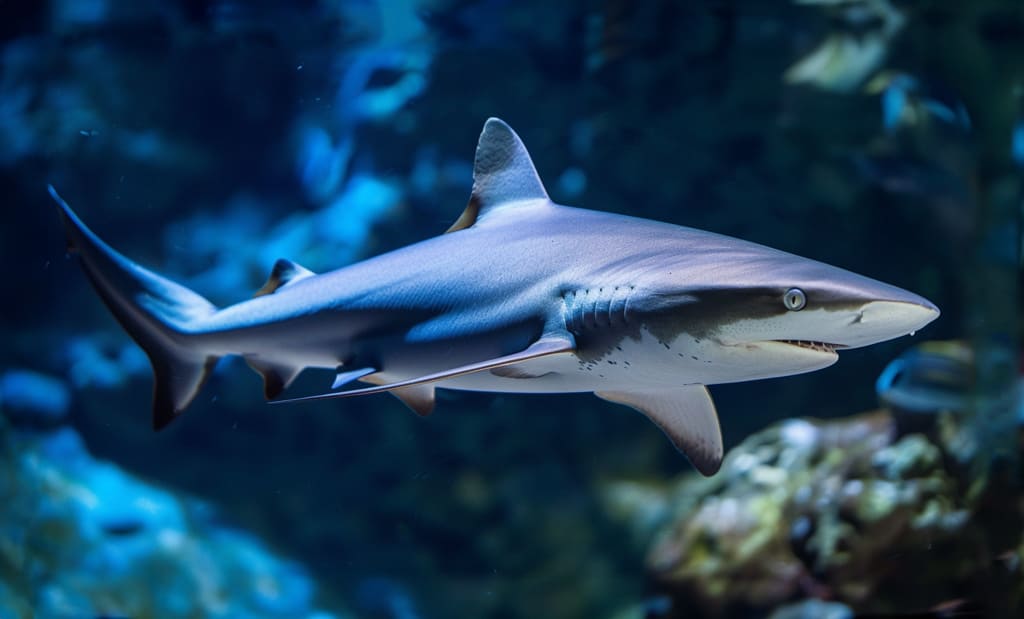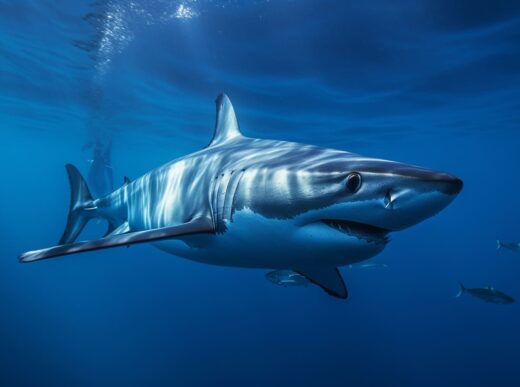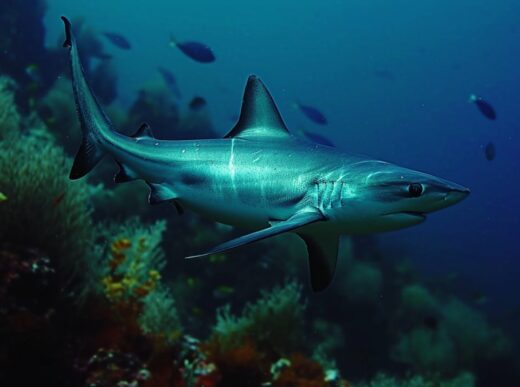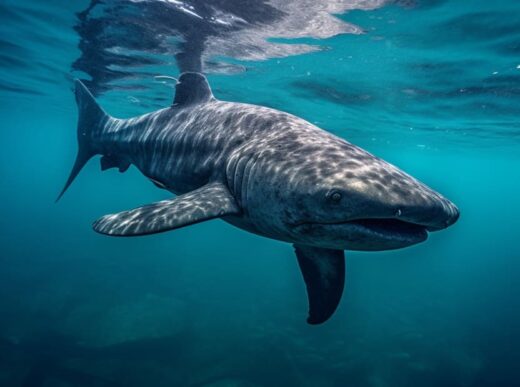Join us for an exciting plunge into the ocean’s depths as we uncover the fascinating world of the Caribbean reef sharks! These fish are not just any sharks—they’re stunningly beautiful and powerful, and you can spot them exclusively in one corner of the globe: the Caribbean Sea. We’ve put together 20 fun and captivating facts that will give you a fresh perspective on these Caribbean sharks. Get ready for a whole new way to see these ocean wonders!
20 Amazing Facts About Caribbean Reef Sharks
Buckle up for an exciting ride through the enigmatic waters ruled by sharks! Join me as we dive into the amazing world of their awe-inspiring features.
Characteristics
1. Let’s dive into the key details – the Caribbean shark truly lives up to its name and is primarily found in the warm embrace of the Caribbean Sea.
2. Now, here’s an intriguing tidbit – initially, this species carried the scientific moniker Platypodon perezi. The name didn’t delve into the shark’s habitat or anatomy, but rather paid homage to the Cuban zoologist Perez Arcas.
This versatile shark goes by various names, including the Caribbean reef shark, Caribbean reef grey shark, Perez’s shark, Perez’s grey shark, and Perez’s Caribbean reef shark. It’s like this shark has a collection of nicknames, each adding a unique touch to its identity!
3. When it comes to size, the Caribbean reef shark plays in the same league as other sharks in its genus, boasting a length that can stretch up to 3 meters.
4. Making a distinction between the Caribbean shark and its reef companions is a bit of a challenge. With its spindle-shaped body, short snout, and a round mouth equipped with triangular teeth, it shares the typical shark look.
5. For the discerning eye aiming to spot the Caribbean shark in a crowd, focus on its dorsal fin. It sports a dark color, free from any distinctive markings or stripes.
6. Brace yourself for the sheer magnitude of the Caribbean shark, as it can tip the scales at a weighty 70 kilograms. Picture this majestic creature gliding toward you, effortlessly cutting through the waves with its sharp fins – a truly elusive ocean behemoth!
Habitats
7. Prepare for a surprise – these formidable predators have staked their claim almost exclusively in the Caribbean Sea and its friendly neighbor, the Gulf of Mexico.
8. Making a rare appearance, a small population of Caribbean sharks can be spotted off the coast of Brazil, just a tad south of the equator. It’s like they’ve got a tropical passport with a preference for warm, vibrant waters!
Lifestyle
9. Adding to the intrigue, the Caribbean shark has a penchant for coastal living, favoring the offshore havens of islands rather than the mainland. Often found near the surface, it occasionally adopts a stealthy approach, lying motionless on the ocean floor, patiently observing its prey.
10. Bucking the trend of migratory habits, the Caribbean shark doesn’t partake in long journeys. It’s a creature of habit, choosing to stay put in familiar waters and staunchly defending its prized hunting grounds from any potential competitors. It’s like the Caribbean shark has its own version of «home is where the heart is!»
Eating Habits
11. Get ready for a delightful twist! The Caribbean reef shark takes on the role of the ocean’s sanitizer. It has a knack for seeking out sick and injured fish, relying on its lateral line – a kind of fluctuation sensor – to gauge their condition by the subtle movements in the water.
12. Here’s a captivating fact: the diet preferences of young and old Caribbean sharks take different culinary paths. The seasoned veterans opt for a piscine menu, leaning towards fish, while the young sharks fearlessly venture into the world of shellfish and crabs. It’s like a gourmet journey that evolves with age!
Intelligence and Social Behavior
13. Here’s a puzzling twist – the Caribbean reef shark holds the title for being the most enigmatic shark in the world. Surprisingly, its intelligence remains a mystery, with little known about its cognitive prowess. All that’s in our knowledge bank is that it’s a solitary creature and a night owl, preferring the cover of darkness for its oceanic escapades. It’s like the Caribbean shark is the ultimate enigma of the deep blue!
Reproduction
14. The Caribbean shark seems to take the egg-living route. Its cubs hatch right within the mother’s womb, emerging fully formed and robust. These newborn sharks are no small fry, reaching an impressive length of 70 centimeters.
15. When it comes to family planning, the Caribbean shark doesn’t go for quantity. In a single litter, there are a modest 1–6 cubs, and the pregnancy itself stretches out over the course of up to a year. It’s like the Caribbean sharks opt for quality over quantity when it comes to expanding their oceanic family!
Population
16. The Caribbean shark keeps its population size under wraps, and scientists harbor concerns for the species’ survival. This unique shark faces threats as it’s targeted for its meat, and with a low birth rate, the challenges to its existence loom large. It’s a delicate balance for the Caribbean sharks in the vast oceanic tapestry.
Danger To Humans
17. Time for a crucial heads-up! The Caribbean reef shark poses a threat to humans and has been involved in multiple attacks on divers and snorkelers.
18. When it comes to these encounters, it’s noteworthy that attacks by this shark are often attributed to human provocation. Nonetheless, the statistics paint a vivid picture, with two dozen reported Caribbean shark attacks in the last decade alone. It’s a reminder to approach their territory with caution and respect.
Are There Any Aquariums with Caribbean Reef Sharks?
19. Here’s a treat for those eager to witness the Caribbean shark in its natural habitat! Head to the Bahamas, where they’ve crafted a unique spectacle of shark feeding. You can catch this mesmerizing display from the comfort of a boat or, for the more adventurous, from an underwater cage.
20. On the flip side, it’s a bit of a downer for aquarium enthusiasts. Spotting a Caribbean reef shark in oceanariums is a near-impossible feat. This rarity contributes to the species remaining shrouded in mystery, with much left to explore and uncover. It’s like the Caribbean shark prefers to keep its secrets guarded beneath the waves!




